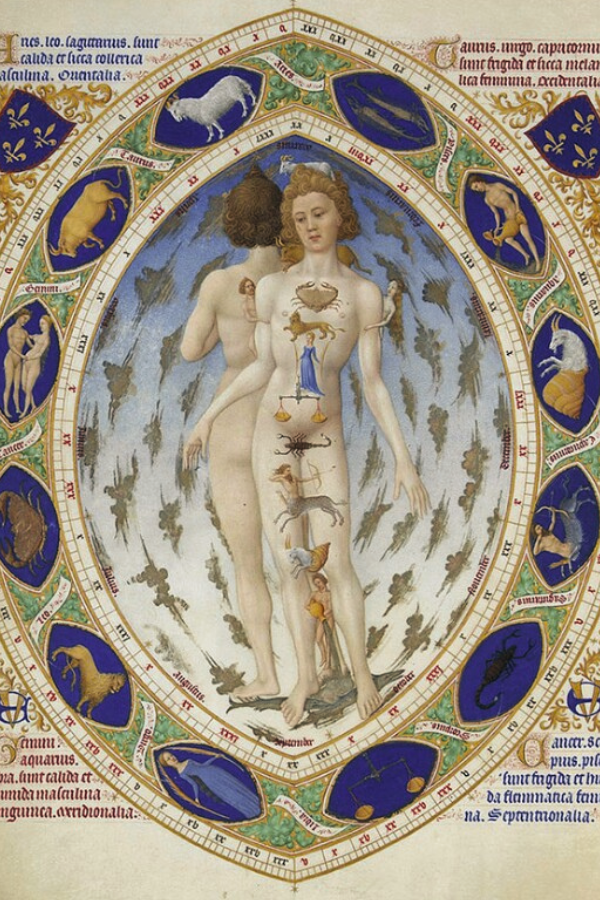

Searching Through Stars: The Best Astrology Books for Beginners and Beyond
Summary
Our journey through the cosmos is richly illuminated by a selection of astrology books, offering insights for every level of interest and expertise. From the foundational principles laid out in “The Only Astrology Book You’ll Ever Need” to the soul-deep explorations in “Astrology for the Soul,” and the historical depths of “Hellenistic Astrology,” these works invite readers to understand themselves and the universe on a more profound level. Whether you’re seeking practical guidance, spiritual growth, or a deeper understanding of astrological dynamics in relationships, there’s a book in this collection to light your path.
Reflection Questions
- Self-Discovery and Growth: How can the insights from these astrology books empower you in areas of personal growth, career, and relationships? Reflect on the aspects of your life where understanding your astrological chart could offer clarity and direction.
- Cultural and Historical Context: Considering the rich history of astrology, reflected in works like “Hellenistic Astrology,” how do you see the practice of astrology as part of a larger cultural and historical narrative? What does this connection to the past add to your understanding of astrology’s relevance today?
- Astrology and Feminine Energy: Many cultures associate the moon and various celestial bodies with feminine energy. How do you relate to these elements in your own astrological studies? Do you find that astrology offers a unique space for exploring and embracing feminine energies and perspectives?
Journal Prompt
Spend some time reflecting on your birth chart, if you have it, or consider your sun, moon, and rising signs. Write about how these astrological elements might reflect your personality, challenges, and strengths. How do you feel these aspects influence your daily life, relationships, and personal growth? Consider any specific transits or planetary movements that are currently affecting you and how you might navigate these energies. Use this reflection to explore how astrology serves as a tool for understanding yourself and your path more deeply.
Below are more than twenty books filled with beautifully illustrated pages, ancient art, and display-worthy references that you’ll love no matter your zodiac sign. Whether you want to prompt a detailed discussion about astrology, predict upcoming events in your love life, dip your toe in dream interpretation, engage in some targeted self-exploration, delight guests with a chart that creates shockingly accurate results, or find the birthday page of your dearest friend, let these books be your guide. We have everything from the complete illustrated encyclopedia series by experienced astrologer Janis Huntley to Astrology for Lovers by Liz Greene. Read on to make your pick!
What Exactly is Astrology?
Astrology is a complex system that seeks to determine human affairs and real life terrestrial events by interpreting the movements and relative positions of celestial bodies. It’s an ancient practice that blends art, science, and mythology, aiming to understand how the sky’s patterns at the time of events, such as births, can influence personality traits and life paths. This culturally relevant practice spanning many different countries far surpasses your astrological sign or your monthly horoscope. There is much more to it.
Origins: Ancient, Modern, and Medieval History


The origins of astrology can be traced back to the 2nd millennium BCE, with roots in calendrical systems used to predict seasonal shifts and to interpret celestial cycles as signs of divine communications. Early astrology was used primarily for forecasting weather patterns and agricultural cycles, evolving over time into the more personal zodiacal astrology that characterizes Western and Indian traditions today.
Babylonian astrology is considered the earliest organized system of astrology, emerging in the 2nd millennium BCE. From there, it spread to other cultures including the Greeks, Romans, Arabs, and eventually throughout the European Renaissance, integrating with the emerging scientific, philosophical, and religious thought of each era. Since its ancient origins, astrology has spread to many other countries.
Historical Practice of Astrology
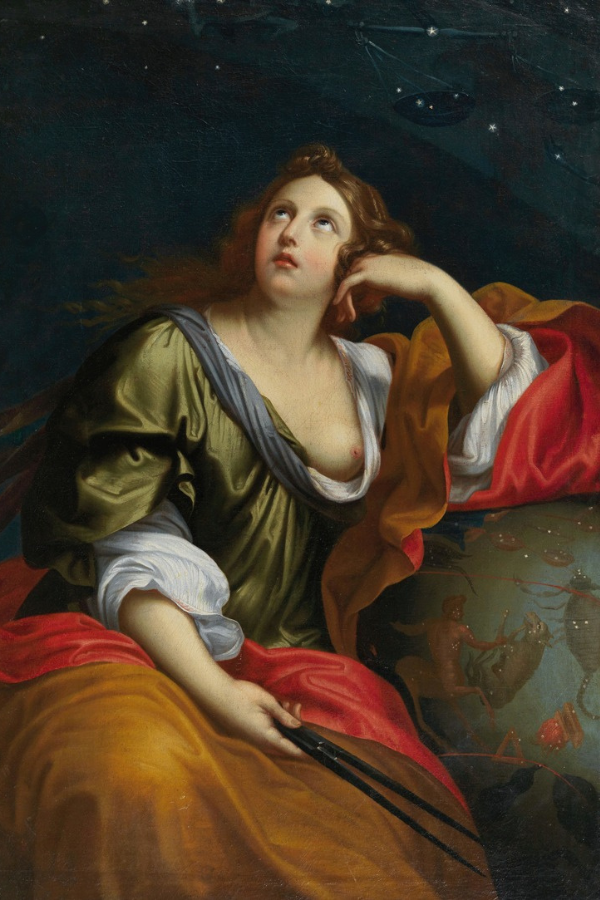

Astrology is practiced in various forms around the world today, with Western, Chinese, Vedic (Indian), and Mayan among the most well-known systems. Each system has its own methods and beliefs, but most share a common foundation: the importance of the position of celestial bodies (the Sun, Moon, planets, and stars) at specific times, such as a person’s birth.
Natal Astrology: This is the most common form practiced in Western cultures, focusing on the analysis of a birth chart to determine personality traits, strengths, weaknesses, and potential life paths. The chart is a snapshot of the sky at the moment of a person’s birth, with the positions of the planets and zodiac signs providing insights into different aspects of their life. This type of chart is used to create an in-depth personality profile and reveal surprising details about a person’s life.
Mundane Astrology: Used to predict events in the world, such as wars, revolutions, and significant political changes, by interpreting celestial cycles.
Electional Astrology: Determines the most auspicious times to undertake important tasks, such as starting a business, getting married, or traveling.
Horary Astrology: Answers specific questions by casting a chart for the time the question is asked.
Medical Astrology: Correlates various parts of the body, diseases, and drugs with the nature of the planets and signs, to aid in diagnosis and treatment.
Modern Practice of Astrology


Today, astrology exists in a cultural spectrum, from those who consider it a legitimate study of human experience influenced by celestial movements to skeptics who dismiss it as pseudoscience. Despite criticism, astrology remains popular, with horoscopes and astrological services widely available in various media forms. It’s seen by many as a tool for self-reflection and understanding, rather than a deterministic science.
Astrology’s resilience and adaptability through centuries underscore its profound impact on human culture, offering insight into the human condition and the universe’s interconnectedness. Its practice today, blending traditional techniques with modern psychological approaches, reflects its enduring appeal and ongoing evolution.
These Are the 21 Best Astrology Books for Beginners and Beyond
“The Only Astrology Book You’ll Ever Need” by Joanna Martine Woolfolk
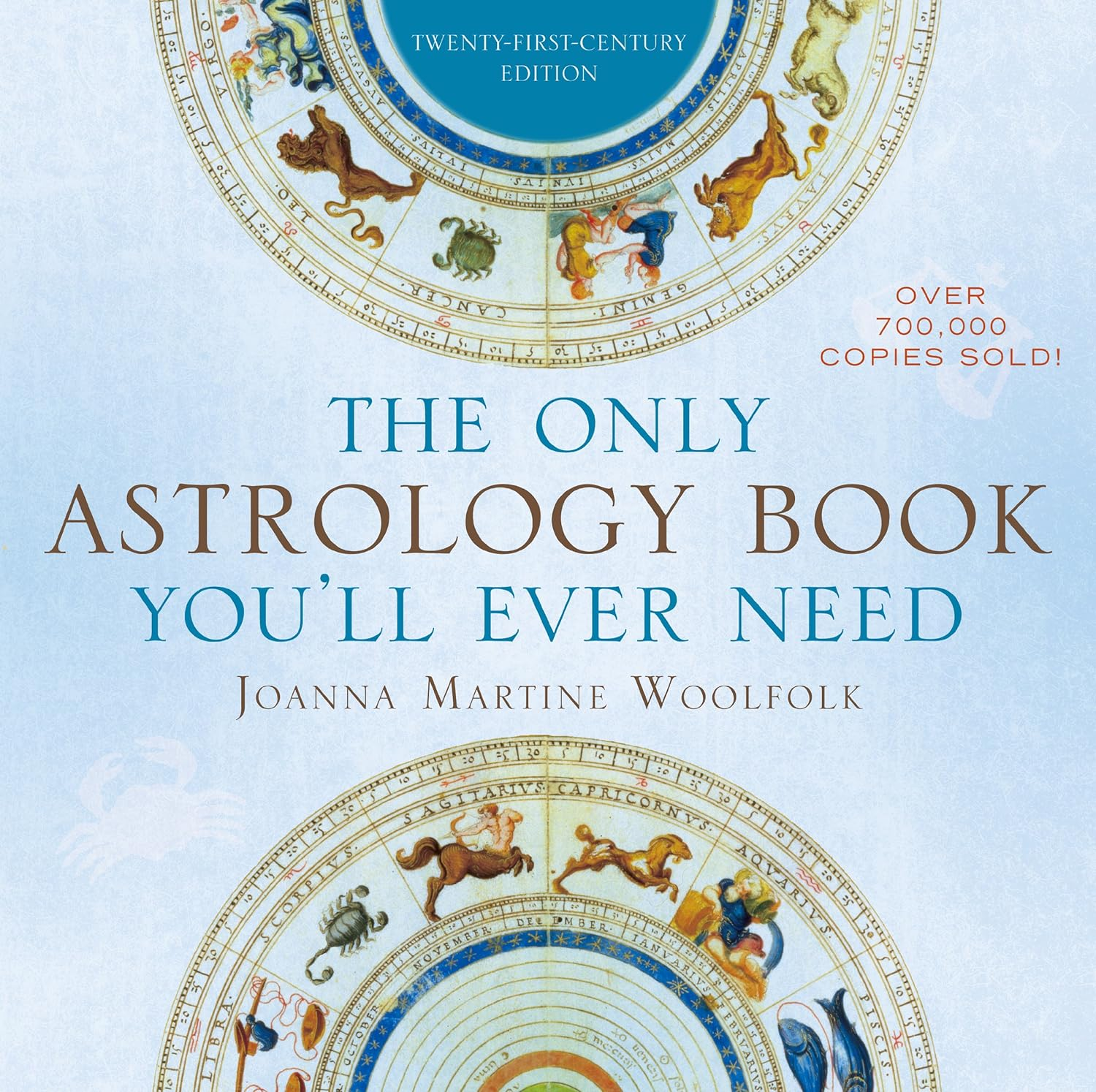

This book lives up to its title by offering a comprehensive introduction to astrology that’s perfect for beginners but also contains enough depth for seasoned enthusiasts. Joanna Martine Woolfolk provides readers with a thorough understanding of sun signs, moon signs, ascending signs, and the placements of planets in the birth chart. The book covers everything from chart reading techniques to predicting future trends, making it an indispensable resource for anyone looking to delve into astrology.
“Astrology for the Soul” by Jan Spiller
Jan Spiller’s “Astrology for the Soul” is a groundbreaking book that introduces the concept of the North Node positions in one’s birth chart, offering deep insights into personal growth, life purpose, and spiritual challenges. Spiller’s work helps readers identify their soul’s direction by exploring the specific lessons and talents their North Node symbolizes, providing a path for personal development and fulfillment.
Fuel your creative fire & be a part of a supportive community that values how you love to live.
subscribe to our newsletter
“Parker’s Astrology” by Julia and Derek Parker
“Parker’s Astrology” by Julia and Derek Parker is a visually stunning and comprehensive guide to astrology. Suitable for both novices and experienced astrologers, this book covers a wide array of topics, including chart reading, planetary influences, and the interpretation of zodiac signs and houses. Its detailed illustrations and clear explanations make complex concepts accessible, making it a favorite among astrology enthusiasts.
“The Secret Language of Birthdays” by Gary Goldschneider and Joost Elffers


Combining astrology, numerology, and the study of the fixed stars, “The Secret Language of Birthdays” offers a unique and detailed personality profile for each day of the year. Authors Gary Goldschneider and Joost Elffers delve into the characteristics, challenges, and opportunities that come with each birth date, providing readers with insightful and often astonishingly accurate portraits of themselves and their loved ones.
“Cosmos and Psyche: Intimations of a New World View” by Richard Tarnas
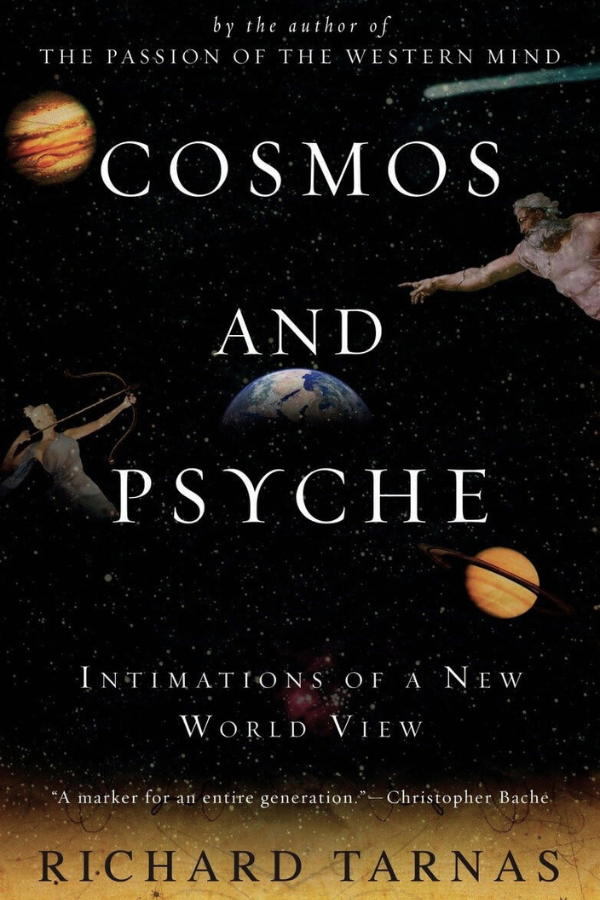

Richard Tarnas’s “Cosmos and Psyche” is a profound exploration of the interconnectedness between celestial patterns and human experiences. Tarnas presents a compelling case for the influence of planetary alignments on historical events and cultural shifts, offering a new perspective on the role of astrology in understanding the human condition. This book challenges conventional views, suggesting a richer, more integrated approach to grasping the depths of human experience and the universe’s mysteries.
“The Inner Sky” by Steven Forrest
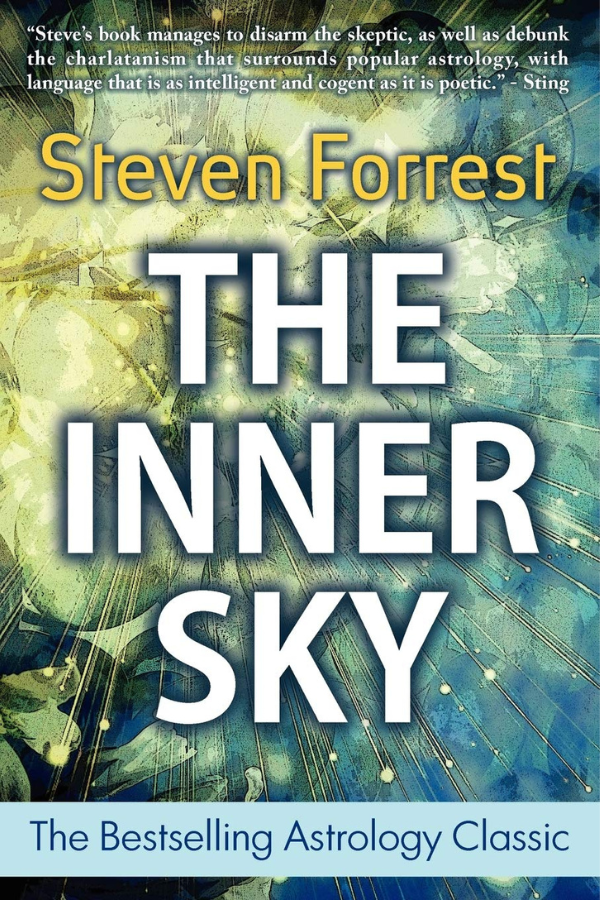

Steven Forrest’s “The Inner Sky” offers a fresh and insightful approach to natal astrology. Known for its clarity and inspiring perspective, the book guides readers through understanding their birth chart as a tool for personal growth and self-discovery. Forrest’s work emphasizes the empowering aspects of astrology, encouraging individuals to navigate life with greater awareness and intention.
“Astrology, Karma & Transformation: The Inner Dimensions of the Birth Chart” by Stephen Arroyo
Stephen Arroyo’s book delves into the deeper aspects of astrology, exploring how the birth chart reflects one’s karmic challenges and potential for transformation. “Astrology, Karma & Transformation” examines the psychological and spiritual dimensions of astrological aspects, offering insights into personal growth and the evolutionary process of the soul. Arroyo’s work is a must-read for those interested in the healing and transformative potential of astrology.
“Llewellyn’s Complete Book of Astrology” by Kris Brandt Riske
Kris Brandt Riske’s guide is an excellent resource for beginners, offering a comprehensive overview of astrology. Covering the basics of chart interpretation, planetary influences, and the significance of the zodiac signs and houses, “Llewellyn’s Complete Book of Astrology” provides a solid foundation for anyone interested in exploring astrological practice.
“The Astrology of You and Me: How to Understand and Improve Every Relationship in Your Life” by Gary Goldschneider
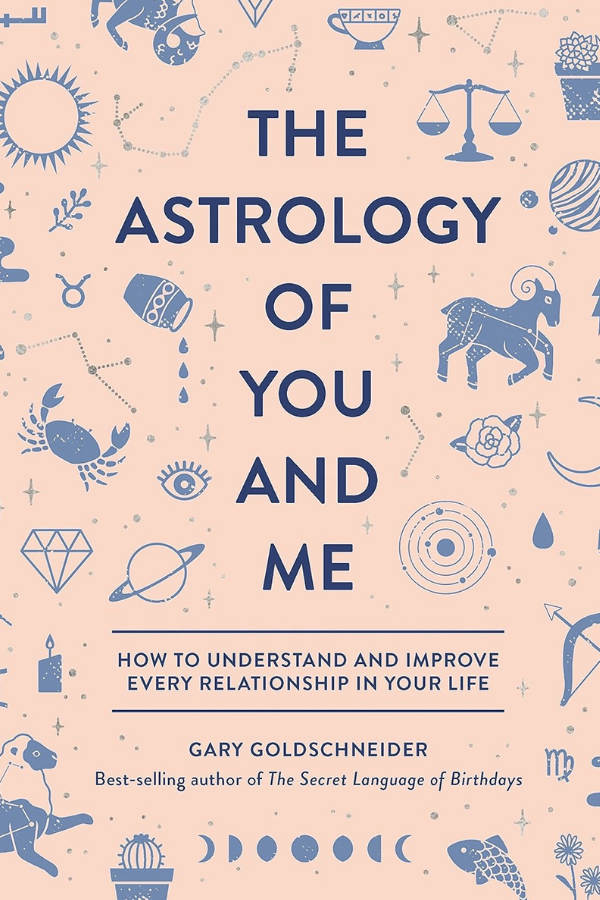

This book offers a unique take on astrology, focusing on how it can be used to enhance relationships. Gary Goldschneider guides readers through the zodiac, offering practical advice on how to communicate, understand, and build relationships with each sign. Whether it’s romantic, familial, or professional relationships, this book provides valuable insights for navigating interactions with everyone in your life.
“Astrological Transits” by April Elliott Kent
April Elliott Kent’s “Astrological Transits” is an essential guide to understanding the significance of planetary movements in one’s life. Focusing on the impact of major transits, Kent offers practical advice on how to navigate these powerful astrological events. The book is a valuable resource for anyone looking to make the most of the opportunities and challenges presented by the planets’ ongoing dance.
“Planets in Transit: Life Cycles for Living” by Robert Hand
Robert Hand’s seminal work on transits is considered a cornerstone in astrological literature. “Planets in Transit” provides an in-depth look at the effects of planetary movements on personal development and life events. Hand’s detailed descriptions of each transit offer invaluable insights into the challenges and opportunities they can bring, making it an indispensable guide for both astrologers and those seeking to understand the influence of the cosmos on their life path.
“Saturn: A New Look at an Old Devil” by Liz Greene
Liz Greene offers a transformative perspective on Saturn, traditionally considered astrology’s most malevolent planet. “Saturn: A New Look at an Old Devil” reinterprets Saturn’s role, highlighting its importance in growth, maturity, and self-discovery. Greene’s work is a must-read for anyone undergoing their Saturn return or looking to understand the deeper lessons this planet has to offer.
“The Contemporary Astrologer’s Handbook” by Sue Tompkins


Sue Tompkins’s handbook is a comprehensive guide that bridges traditional and modern astrological techniques. Suitable for practitioners at all levels, “The Contemporary Astrologer’s Handbook” covers everything from the basics of chart interpretation to advanced aspects like progressions and transits. Tompkins’s clear and accessible writing makes complex concepts understandable, providing readers with the tools they need to practice astrology in today’s world.
“Hellenistic Astrology: The Study of Fate and Fortune” by Chris Brennan
Chris Brennan’s exploration of ancient astrology offers a fascinating look into its origins and practices. “Hellenistic Astrology” delves into the philosophical and technical foundations of the tradition, providing insights that are still relevant for modern astrologers. Brennan’s thorough research and clear presentation make this complex subject accessible, offering readers a deeper understanding of astrology’s roots.
“Astrology for Yourself: How to Understand And Interpret Your Own Birth Chart” by Demetra George & Douglas Bloch
A unique blend of workbook and guide, “Astrology for Yourself” empowers readers to explore their birth chart through interactive exercises. Demetra George and Douglas Bloch provide clear instructions for interpreting planetary positions, aspects, and houses, making astrology personal and practical. This book is ideal for those looking to take their first steps into self-discovery through astrology.
“The Twelve Houses” by Howard Sasportas
In “The Twelve Houses,” Howard Sasportas offers an in-depth exploration of one of astrology’s fundamental concepts. The book examines the significance of each house in the birth chart, relating them to various aspects of life such as identity, relationships, and career. Sasportas’s insights help readers understand how the houses reflect individual experiences and challenges, making this a key resource for anyone interested in the nuances of astrological interpretation.
“Carole Taylor’s Astrology: Using the Wisdom of the Stars in Your Everyday Life” by Carole Taylor


Carole Taylor’s book blends traditional astrological wisdom with contemporary life, offering practical advice on using astrology in everyday situations. From understanding personal dynamics to making career decisions, Taylor shows how the stars can guide us in various aspects of life. Her accessible approach makes astrology relevant and useful for modern readers.
“The Essential Guide to Practical Astrology” by April Elliott Kent
April Elliott Kent’s guide demystifies astrology, making it accessible to a broad audience. Covering basic concepts and advanced techniques, the book offers a clear, straightforward approach to understanding and applying astrological principles. Whether you’re new to astrology or looking to expand your knowledge, Kent’s book provides the tools you need to navigate life with the wisdom of the stars.
“Soul Signs: An Elemental Guide to Your Spiritual Destiny” by Diane Eichenbaum
Diane Eichenbaum’s “Soul Signs” uses the elements—fire, earth, air, water—to offer a fresh perspective on astrology. By focusing on the elemental nature of the zodiac signs, Eichenbaum provides insights into personality traits, relationships, and life paths. This book is a valuable resource for anyone looking to understand the deeper spiritual and elemental influences in their astrological chart.
“Astrology for Lovers” by Liz Greene
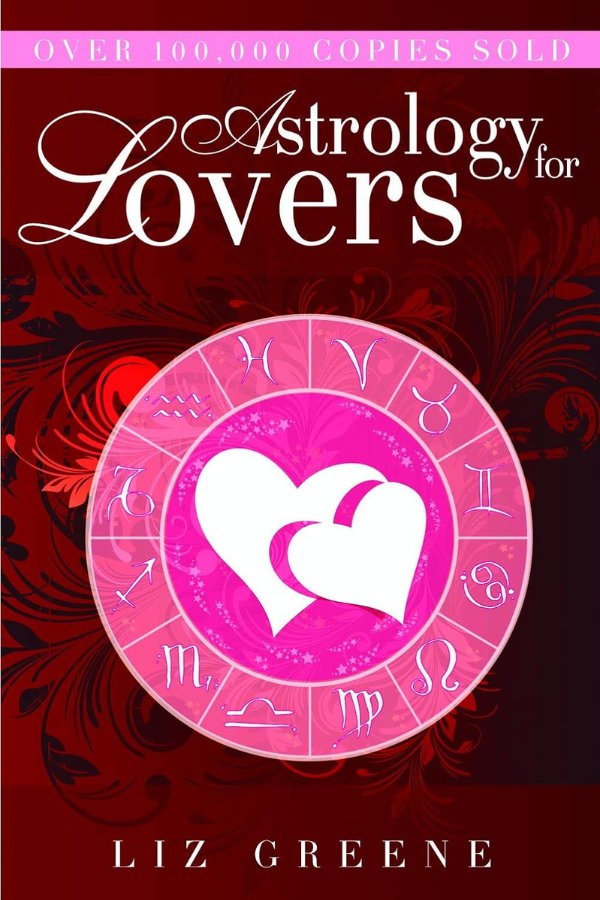

Liz Greene’s “Astrology for Lovers” is an insightful exploration of relationships through the lens of astrology. Focusing on synastry, the comparison of two birth charts, Greene offers deep insights into the dynamics of love and compatibility. This book is essential reading for anyone interested in understanding the astrological underpinnings of their relationships, providing tools for harmony and understanding in love.
Which Astrology Book Will You Order?
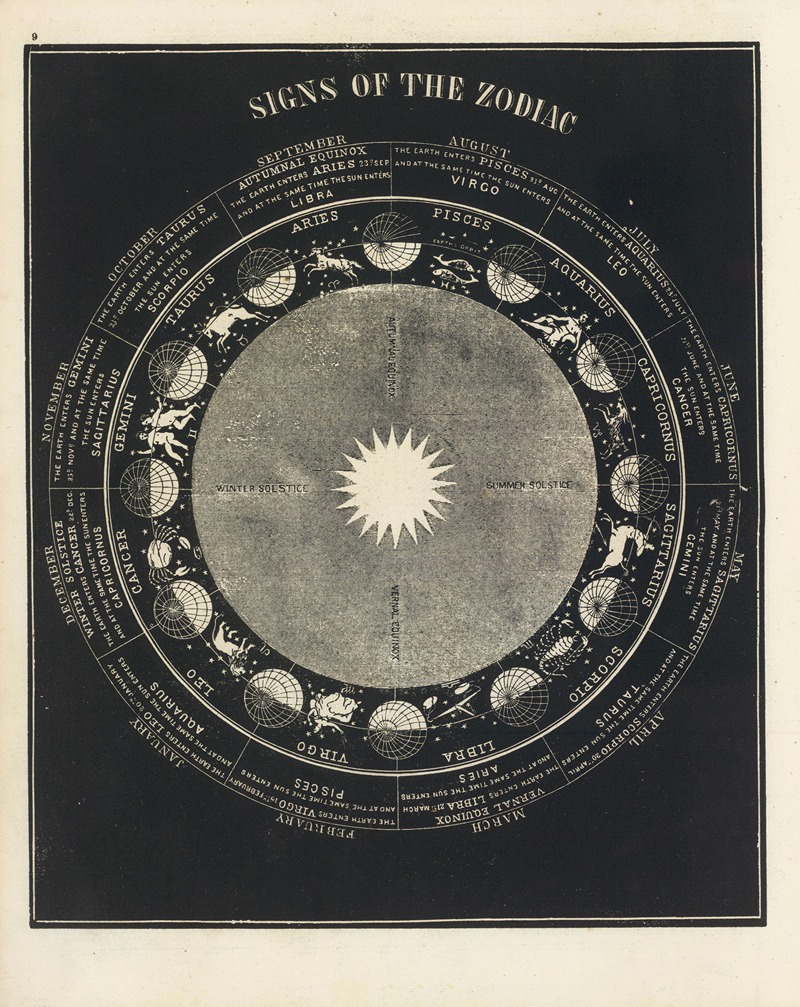

Let us know in the comments below! And if we missed a book that you absolutely adore, please do reach out!
Design Dash
Join us in designing a life you love.
-
All About Our 7-Day Focus & Flex Challenge
Sign up before August 14th to join us for the Focus & Flex Challenge!
-
Unique Baby Names Inspired by Incredible Women from History
Inspired by historic queens, warriors, artists, and scientists, one of these unusual baby names might be right for your daughter!
-
Finding a New 9 to 5: How to Put Freelance Work on a Resume
From listing relevant skills to explaining your employment gap, here’s how to put freelance jobs on your resume.
-
What is Generation-Skipping, and How Might it Affect Sandwich Generation Parents?
The emotional pain and financial strain of generation skipping can be devastating for Sandwich Generation parents.
-
Four Material Libraries Dedicated to Sustainability, Preservation, and Education
From sustainable building materials (MaterialDriven) to rare pigments (Harvard), each materials library serves a specific purpose.
-
Do You Actually Need a Beauty Fridge for Your Skincare Products? (Yes and No.)
Let’s take a look at what dermatologists and formulators have to say about whether your makeup and skincare belong in a beauty fridge.








